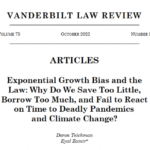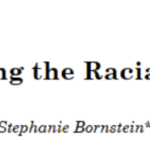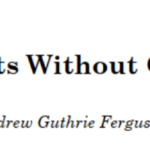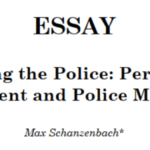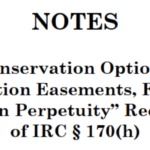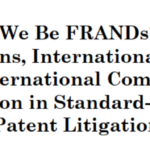October, 2022
Exponential Growth Bias and the Law: Why Do We Save Too Little, Borrow Too Much, and Fail to React on Time to Deadly Pandemics and Climate Change?
Oct. 20, 2022—Doron Teichman & Eyal Zamir | 75 Vand. L. Rev. 1345 Many human decisions, ranging from the taking of loans with compound interest to fighting deadly pandemics, involve phenomena that entail exponential growth. Yet a wide and robust body of empirical studies demonstrates that people systematically underestimate exponential growth. This phenomenon, dubbed the exponential growth...
Confronting the Racial Pay Gap
Oct. 20, 2022—Stephanie Bornstein | 75 Vand. L. Rev. 1401 For several decades, a small body of legal scholarship has addressed the gender pay gap, which compares the median full-time earnings of women and men. More recently, legal scholars have begun to address the racial wealth gap, which measures racial disparities in family economic security and wealth...
Courts Without Court
Oct. 20, 2022—Andrew Guthrie Ferguson | 75 Vand. L. Rev. 1461 What role does the physical courthouse play in the administration of criminal justice? This Article uses recent experiments with virtual courts to reimagine a future without criminal courthouses at the center. The key insight of this Article is to reveal how integral physical courts are to...
Policing the Police: Personnel Management and Police Misconduct
Oct. 20, 2022—Max Schanzenbach | 75 Vand. L. Rev. 1523 Police misconduct is at the top of the public policy agenda, but there is surprisingly little understanding of how police personnel management policies affect police misconduct. Police-civilian interactions in large jurisdictions are, in principle at least, highly regulated. But these regulations are at least partially counteracted by...
Conservation Options: Conservation Easements, Flexibility, and the “In Perpetuity” Requirement of IRC § 170(h)
Oct. 20, 2022—Molly Teague | 75 Vand. L. Rev. 1573 Conservation easements have been closely tied to tax incentives since the 1970s, when Congress passed legislation to encourage land preservation. In an attempt to balance the desire to conserve more land with the desire to prevent tax abuses, Congress later passed § 170(h) of the Internal Revenue Code,...
Why Can’t We Be FRANDs?: Anti-Suit Injunctions, International Comity, and International Commercial Arbitration in Standard-Essential Patent Litigation
Oct. 20, 2022—Raghavendra R. Murthy | 75 Vand. L. Rev. 1609 Picking up a smartphone to contact someone across the globe is facilitated by technical standards like 5G. These standards allow for technological compatibility worldwide. For instance, a 5G capable device can connect to 5G networks anywhere in the world because the same 5G standard is used...
